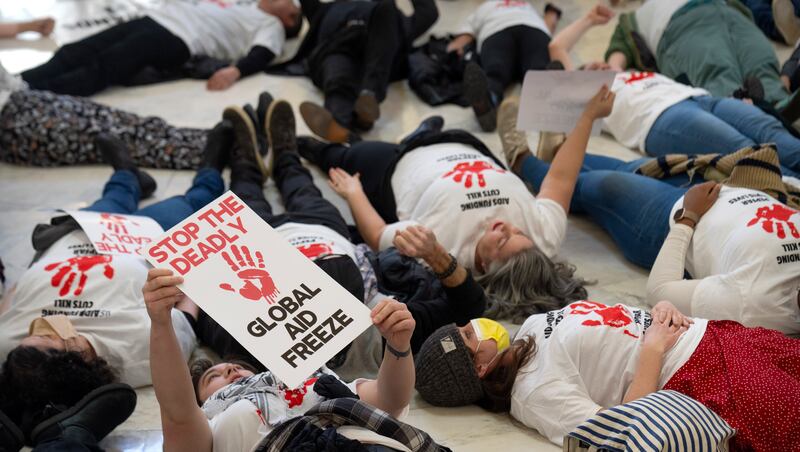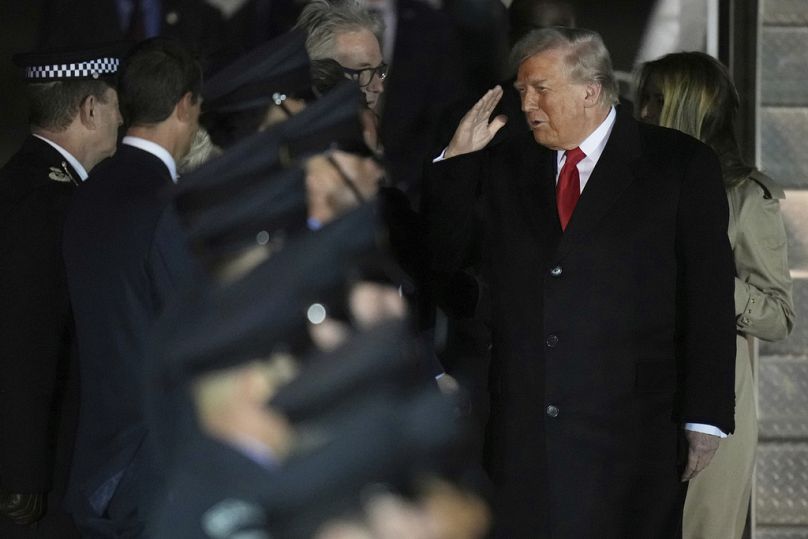
WASHINGTON — The White House has agreed to remove proposed cuts to an HIV/AIDS prevention program in an attempt to get sufficient Republican support to approve $9 billion in other spending cuts central to President Donald Trump’s agenda.
The administration made a deal with Senate Republicans to remove $400 million in proposed cuts to the U.S. President’s Emergency Plan for AIDS Relief, or PEPFAR, a program launched under the George W. Bush administration that focuses on global HIV prevention, care and treatment. The agreement brings the total spending cuts package to $9 billion targeting other forms of foreign aid and organizations that the Trump administration has accused of being anti-conservative.
We're fine with adjustments," Office of Management and Budget Director Russ Vought told reporters on Tuesday after meeting with GOP senators. "This is still a great package, $9 billion, substantially the same package. The Senate has to work its will, and we've appreciated the work along the way to get to a place where they think they've got the votes.
The proposed cuts raised concerns among some Senate Republicans, including Utah Sen. John Curtis, who suggested removing that provision from the final package.
Still, the promise to remove the cuts has left some wary Republicans with more questions than answers. While the updated language would explicitly protect some programs, some senators have expressed that they have not been given adequate information from the administration about what would specifically be cut.
"It's unclear to me how you get to $9 billion," Senator Susan Collins, R-Maine, who has opposed cuts to the global health program, told reporters.
Collins cited other concerns with the package, including proposed cuts to the Corporation for Public Broadcasting specifically targeting PBS and NPR.
The Senate is expected to vote on the package as early as Wednesday, which will only require a simple majority because it includes only budgetary changes. However, that opens the process up to an unlimited amendment process, giving Republicans a chance to remove some of the provisions before final passage.
If they are successful in doing so, the bill would then need to go back to the House for approval before it can head to Trump's desk for his signature. The House is expected to vote on those changes on Thursday at the earliest, according to the vote schedule shared with lawmakers obtained by the Deseret News.
However, some House Republicans have expressed frustration with their Senate colleagues for allowing smaller cuts than what was included in Trump's original request.
A group of 15 fiscal conservatives in the House sent a letter to Senate Majority Leader John Thune, R-S.D., on Tuesday warning that "weakening" the cuts would "undermine both his leadership and the discipline our budget urgently demands." Instead, the group urged the Senate to pass the rescissions package as-is .
This is just a test case that the White House wants to see if we've got stomachs, if we've got guts, if we've got muscles for what we're willing to pass," Rep. Mark Harris, R-N.C., who signed the letter, told the Deseret News. "And if we can't hit this softball that's being pitched right over home plate, we can't knock this out of the park, then I'm very concerned about what we as Republicans are really willing to do.
But those demands may not be feasible as lawmakers are right up against the deadline on Friday, the day when the bill must be passed and signed by Trump, otherwise all halted funding must be continued.







0 komentar:
Posting Komentar